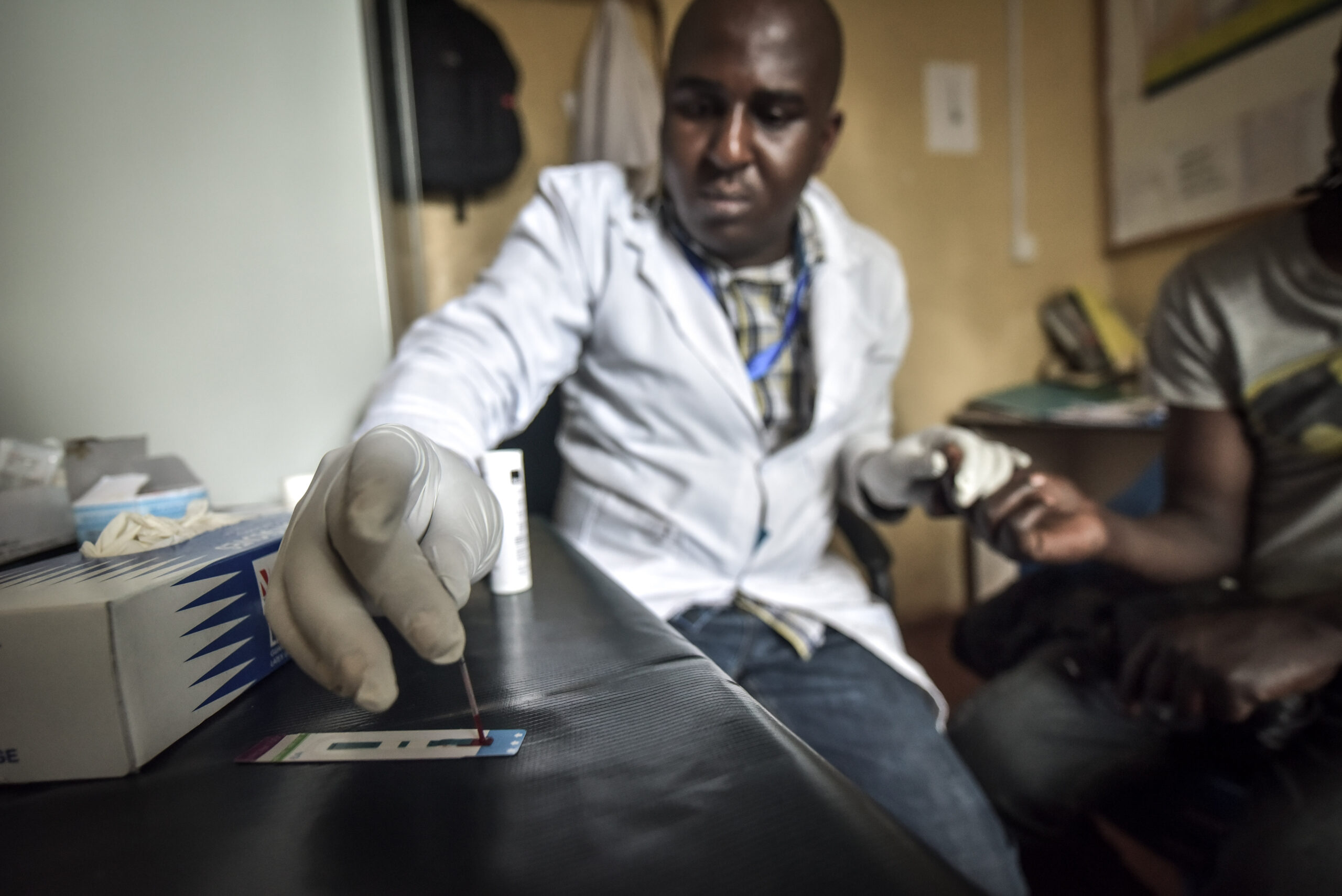The problem
Despite being curable, hepatitis C is a global public health threat: worldwide, an estimated 58 million people live with chronic hepatitis C, and low-and-middle-income countries (LMICs) are home to 80% of people affected by this condition. Many of them are also people living with HIV.
New medicines are highly effective, but most people do not have access to them – just over 20% get a diagnosis and only 13% access treatment. Untreated, hepatitis C can lead to serious liver disease and cancer.
Marginalized groups, including people who inject drugs or are in prisons, are disproportionately affected by hepatitis C, yet they are rarely involved in project design due to stigma and barriers to care.
Our response
We aim to reduce hepatitis C incidence in people who inject drugs and those who are incarcerated while developing scalable models for prevention and treatment that can be applied to low- and middle-income settings worldwide. Effective prevention tools and approaches can help avert transmission of other blood-borne diseases including HIV and address the disproportionate impact of hepatitis C on people living with HIV.
Part of a broader Unitaid investment into hepatitis C prevention, Frontline AIDS is working alongside two complementary projects led by PATH and Médecins du Monde to pilot new technologies, build evidence and empower communities. TTogether, the initiatives are working across 10 countries to develop scalable models for hepatitis C prevention, reduce costs and kickstart uptake.
Low dead space syringes
Reduces the risk of transmitting blood-borne infections like hepatitis C, as well as hepatitis B and HIV, when needles are shared.
Self-tests for hepatitis C
Fast, reliable self-test results ensure more people access treatment.
Long-acting buprenorphine
A long-acting formulation of an opioid agonist treatment, which is used to reduce opioid cravings and could help reduce behaviors that contribute to the transmission of hepatitis C and other blood-borne diseases.






